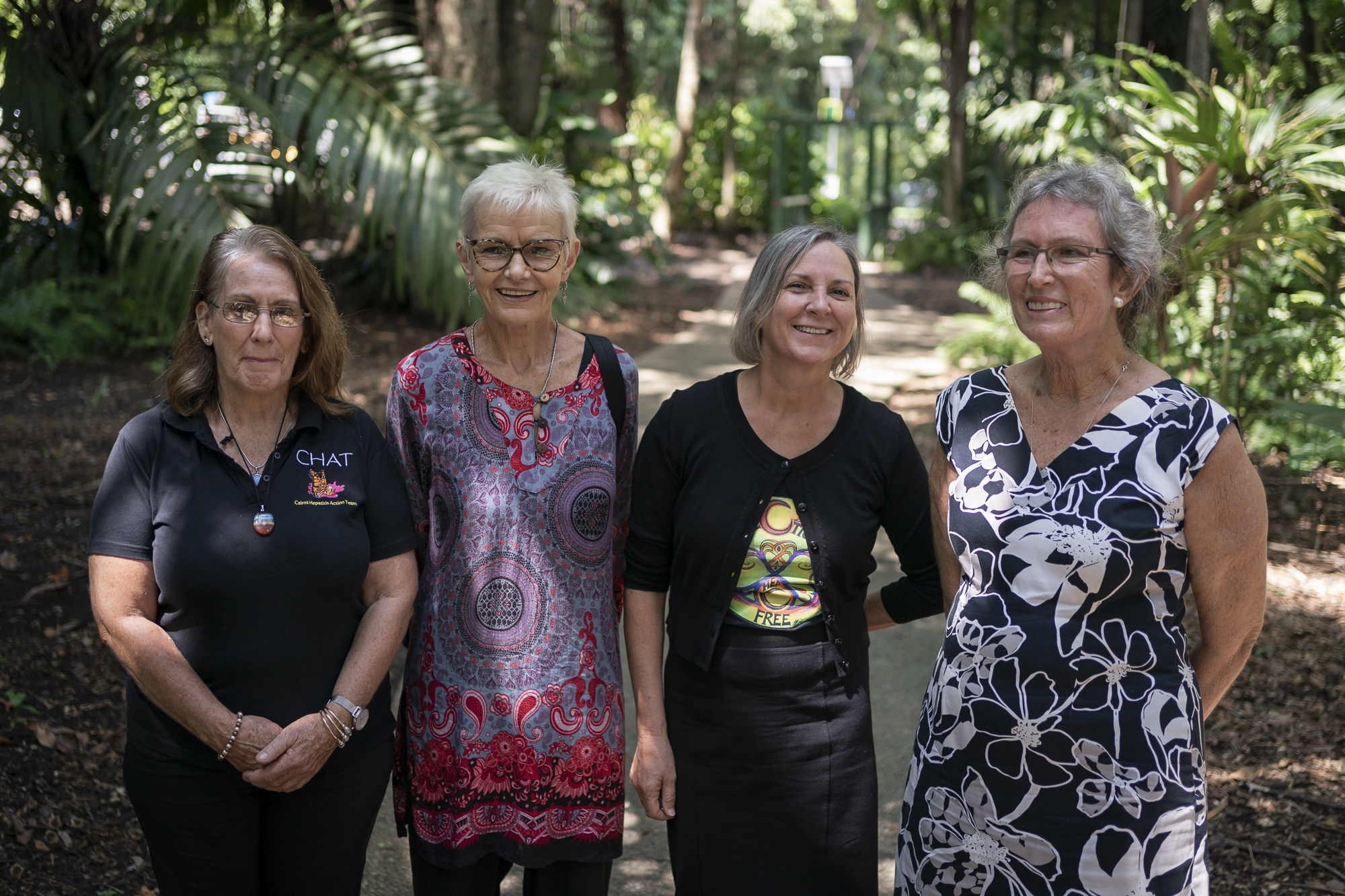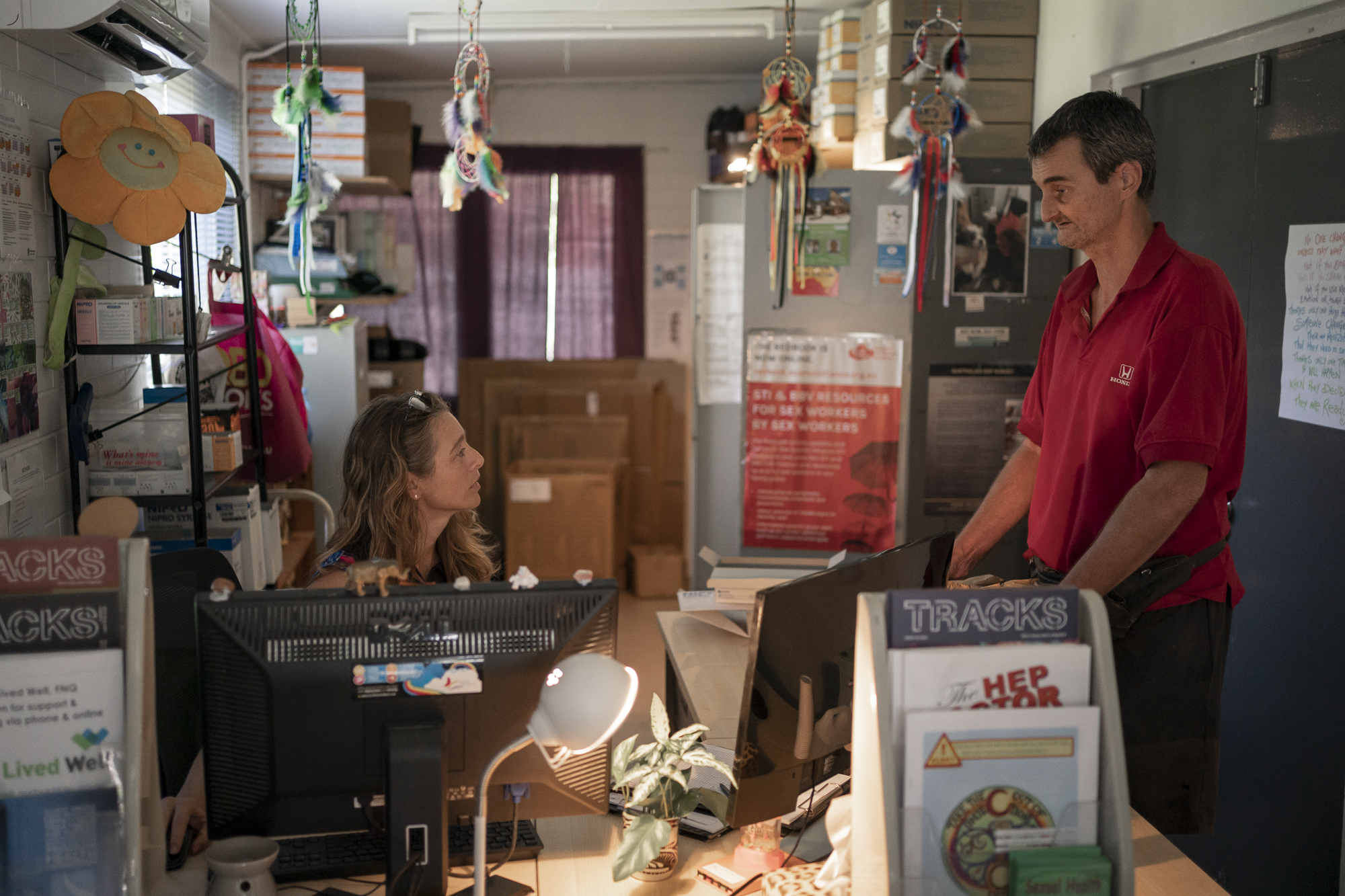In our latest Connecting with Care story, we head to Cairns, Tropical North Queensland, Australia to out more about the Cairns Hepatitis Action Team (CHAT) and other organisations that are fighting for a hep C free future.
As our plane descends through the clouds, we sweep past the luscious green mountains that frame the small city of Cairns. Walking along the tarmac, passengers are immediately embraced by the thick humidity synonymous with life in the tropics of North-Eastern Queensland, Australia.
Cairns is a small city of approximately 160,000 residents. It is often described as the gateway to Queensland’s tropical north with a rather laid-back vibe. Many of the city’s residents have migrated from other parts of the country or around the world.
Throughout Australia and around the world, people who use drugs still face daily stigma and discrimination. Such stigma and discrimination are experienced in a variety of settings, including health care, law enforcement, and other institutional environments.
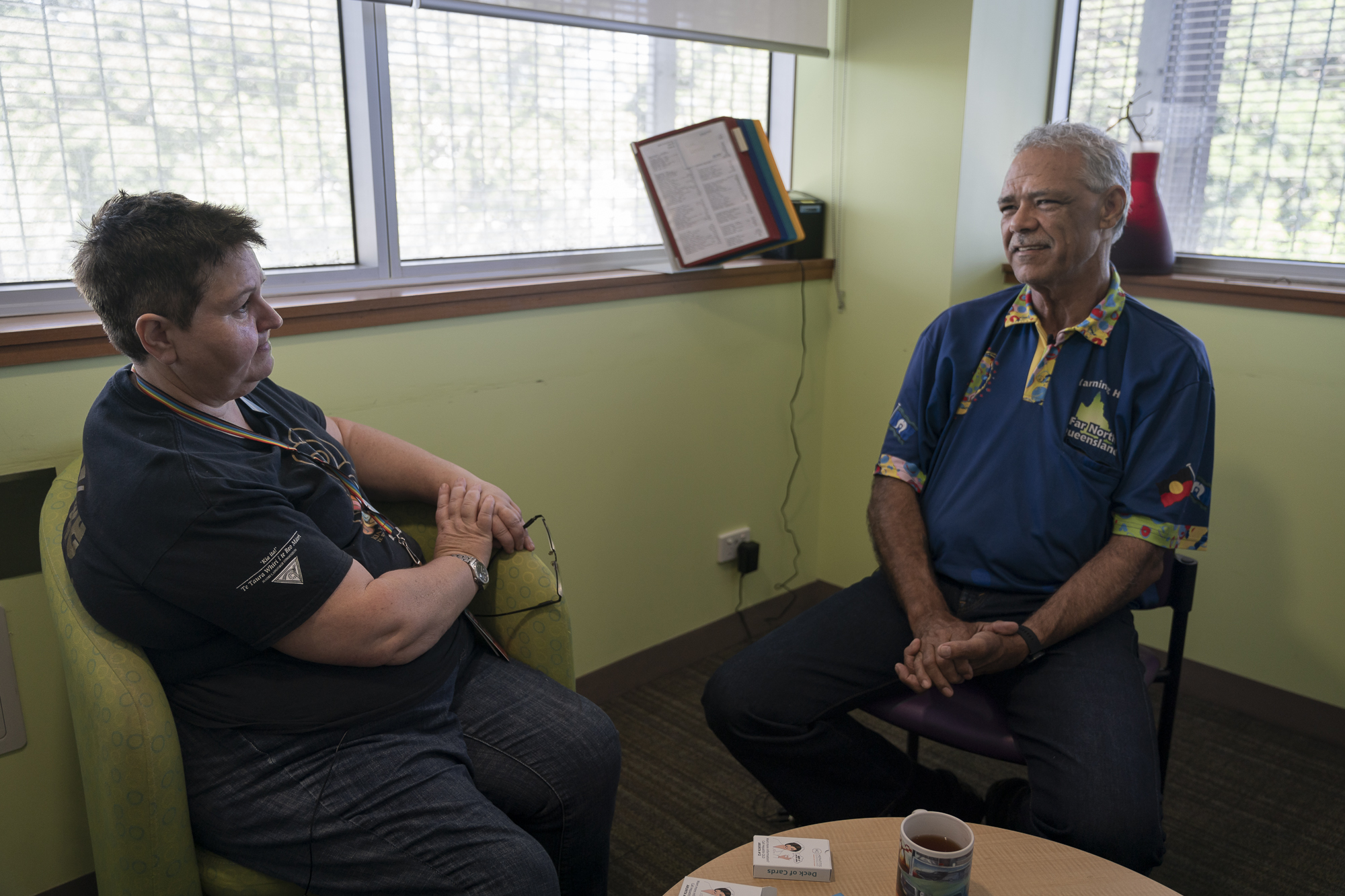
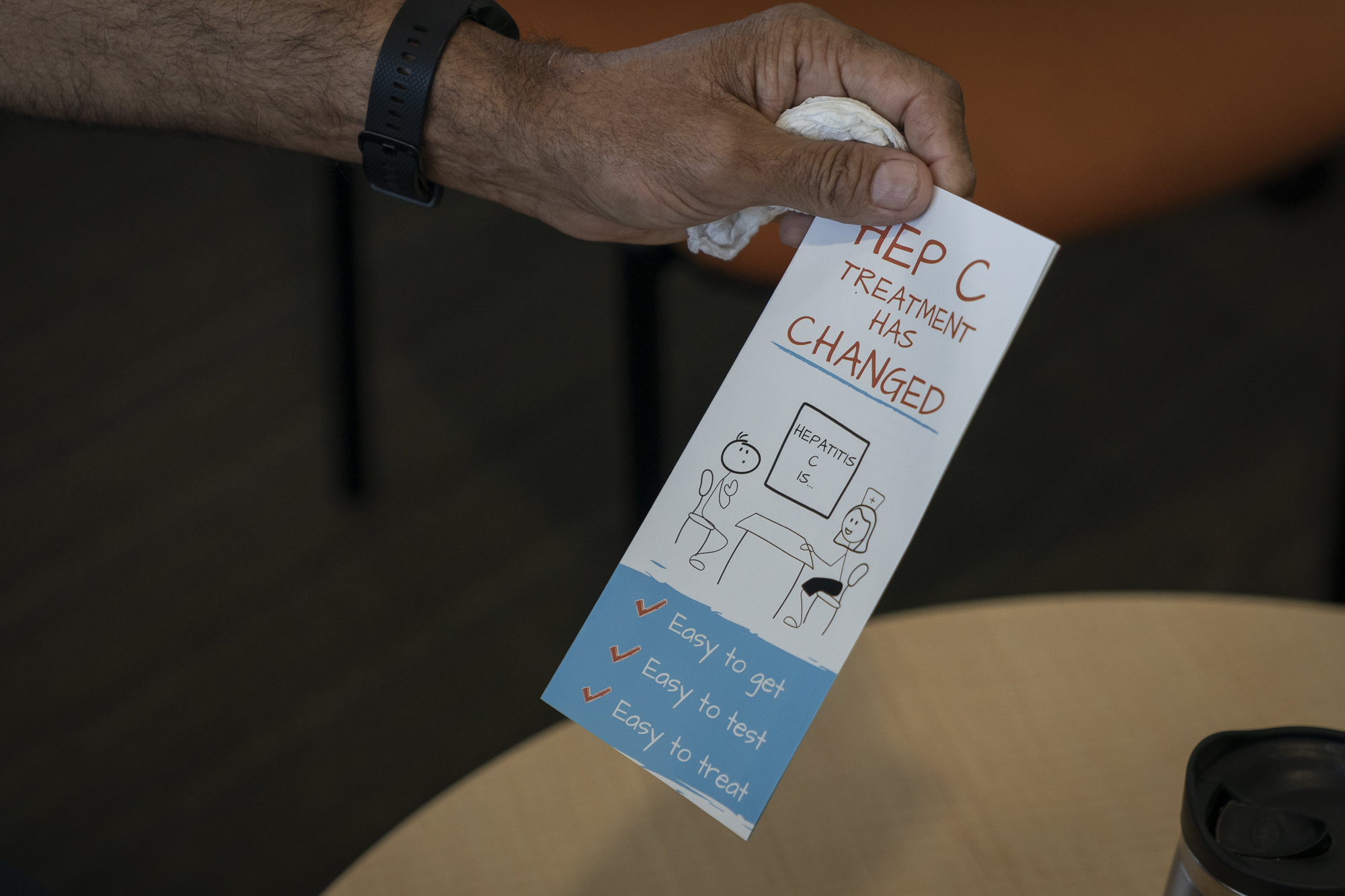
Dr Darren Russell is the director of the Cairns Sexual Health Service (SHS), a free walk-in health service that provides safe, non-judgmental care for its clients. Dr Russell still remembers in late 2015, when the Australian government announced the landmark deal reached to pave the way to ensuring all Australians could access the direct-acting antiviral (DAA) medications for hepatitis C.
I remember it was on the weekend, and that night I went to bed, and I woke up in the middle of the night thinking we need these drugs. And when we get them, we can clear Cairns of Hep-C.
Dr Darren Russell, director, Cairns Sexual Health Service (SHS)
Buoyed with the excitement of this new announcement, through early 2016, Dr Russell came up with the goal Cairns Hep C Free by 2020. He knew that Cairns SHS provided a solid foundation to achieve this big goal, however, to be really successful, they needed to work in partnership with the other health services in Cairns and regional areas and strengthen existing partnerships.
In addition to strengthening referral and treatment pathways from and between other services in Cairns, Dr Russell also began a big push along with Dr Heather McNamee to educate GP’s on the ease of treating their clients for hepatitis C.
“Our aim is to get people treated,” he says. “We don’t care how it happens. However, it works for you will work it works for us. We went out to many of the general practices in our region and gave that education over lunch times. It was very successful.”
Establishing the Cairns Hepatitis Action Team (CHAT)
Before the new DAA medications were announced, the public health promotion team at Cairns SHS established the Cairns Hepatitis Action Team or CHAT as the group is most commonly known. CHAT was established as a support group for people affected by either hepatitis B or C who are passionate about making positive changes for other people living with viral hepatitis.
Over the years, the group has held art exhibitions, presented at conferences, advocated to politicians about better access to treatment, and sought to connect meaningfully with community members who may not have sought treatment for hepatitis C.
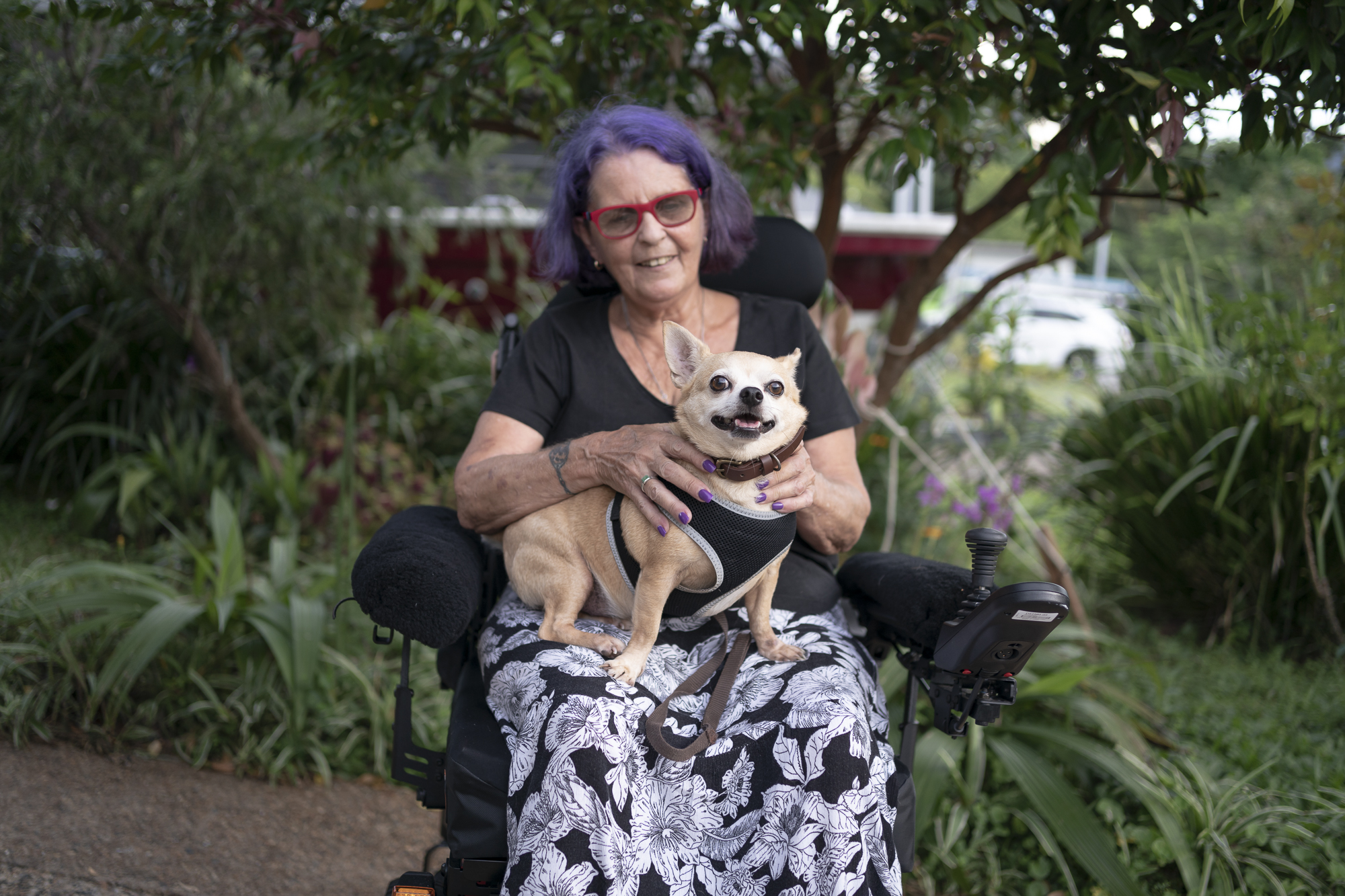
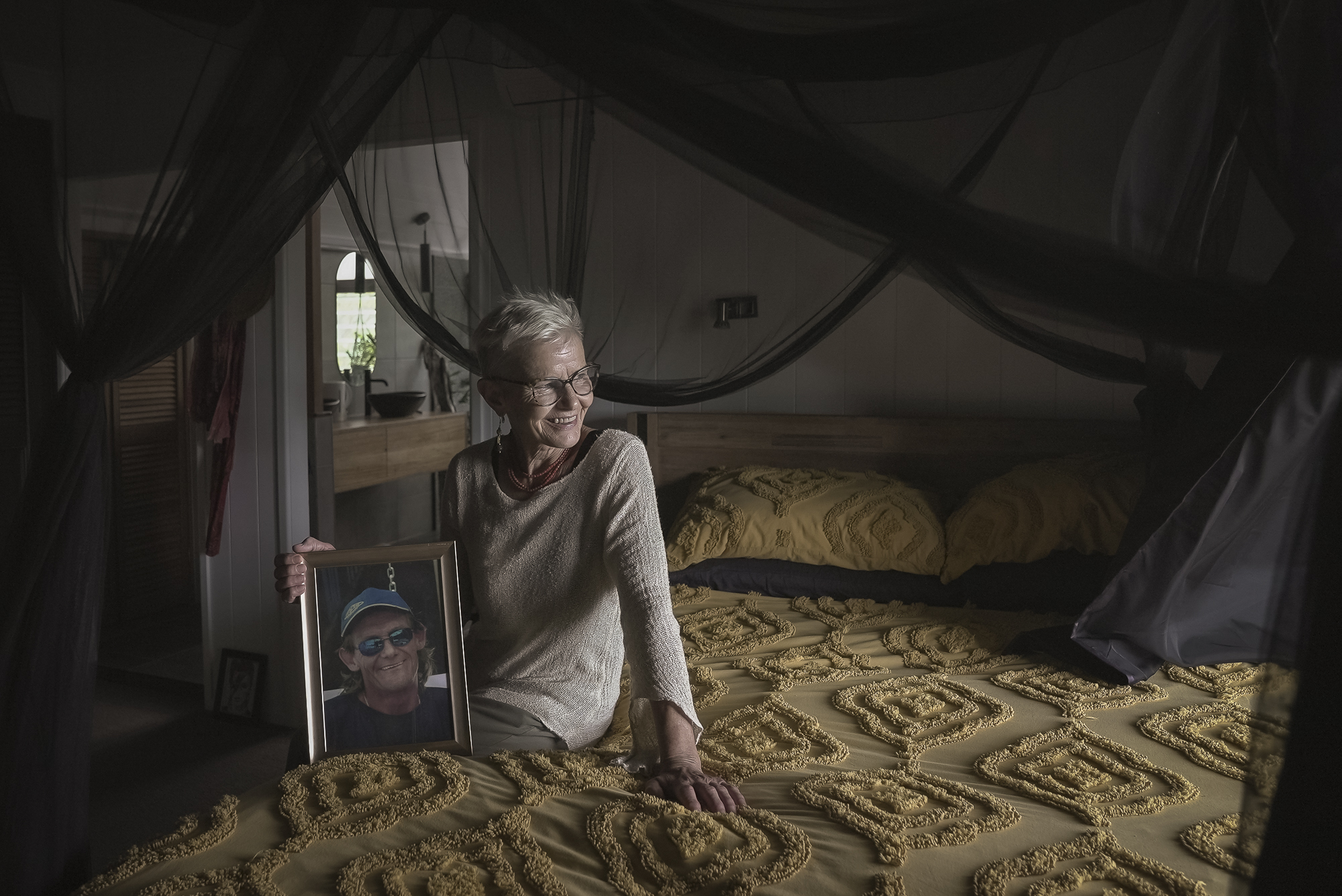
Meeting CHAT’s members
CHAT member Kathy Clark has played a pivotal role over the years in supporting dozens of community members through their hep C treatment journeys. Kathy is incredibly warm, a great listener and always attentive to the needs of people in the community.
Cairns residents Rose and Tracey both contracted hepatitis C decades ago. Like so many others around Australia, treatment in the pre-DAA era wasn’t a priority for several reasons, including poor cure rates and gruelling treatment regimes. A key turning point for the pair was meeting Kathy.
Kathy’s support for Rose and Tracey and many others in the community is quite often the simple things, assisting with transport into Cairns SHS, providing company in waiting rooms and in appointments and sometimes just being a supportive listener on the other end of the phone on difficult days.
The trusting relationship Kathy built with Rose and Tracey didn’t come to an end when the pair completed their hepatitis C treatment and found out they were hep C free. Kathy has continued to stay in touch and invited them to harm reduction training and other opportunities that might interest the pair. For Tracey, attending one of Kathy’s trainings meant she was able to save a friend’s life.
Kathy actually was doing a harm reduction course, and we got trained in how to use the Naloxone pen and got a little card which we can carry in our wallet, and it says that we are trained to use it. And I actually had someone overdose on fentanyl at my house. And I actually had to use all five goes, but it helped until the ambulance got there. So like, I’m so glad I did that because that saved his life. And Kathy does so much to help so many people.
Youth Link Harm Reduction
Local community-based organisation Youth Link is one of Cairns’ key harm reduction services. Youth Link’s Needle and Syringe Program (NSP) is managed by Nadine Horasak. Nadine is bubbly and empathetic and warmly welcomes each person into the NSP.
Nadine really has made the most of the small. The walls are filled with public health posters and signs encouraging people to get tested for hep C and HIV. In front of Nadine’s desk is a pile of clothes for clients to sift through and bottles of water to take with them as they return to the city’s tropical heat. Nadine naturally connects with clients, whether it be a first time or a regular visitor.
The way hep C conversations emerge is pretty simple really. I just ask people straight up have they been tested for hep C lately? And if they’re on the treatment, I ask, how are they going with it, do you feel better? Are you less tired? And it’s, it’s generally a pretty amazing response there. And people are generally very happy about it.
Nadine Horasak, Youth Link’s Need and Syringe Program (NSP)
Nadine works closely with Cairns Sexual Health Service public health promotion team Carla Gorton and Rhondda Lewis. This close working relationship means she can easily refer clients to them for a range of support and services, including for hep C testing, such as Damien.
Damien is a tall man with striking green eyes and a warm smile. Living close to Youth Link makes it easy for Damien to access the service or just drop in to chat with Nadine. Damien was living with hep C for much of his adult life. Still, like many others, he was put off by the difficult treatment journey and low cure rates of the pre-DAA medications. When learning about the new DAA treatments, Damien was referred to Cairns Sexual Health Service, where he was quickly initiated on treatment.
After three months of treatment that consisted of a single tablet per day, Damien was over the moon to learn he was finally hep C free:
Being hep C free is a great thing for me because it allows me to interact with my grandchildren without any worries that my pass it on to them or anybody else for that matter. Hep C Free is a great way to be.
Damien, now Hep C free.
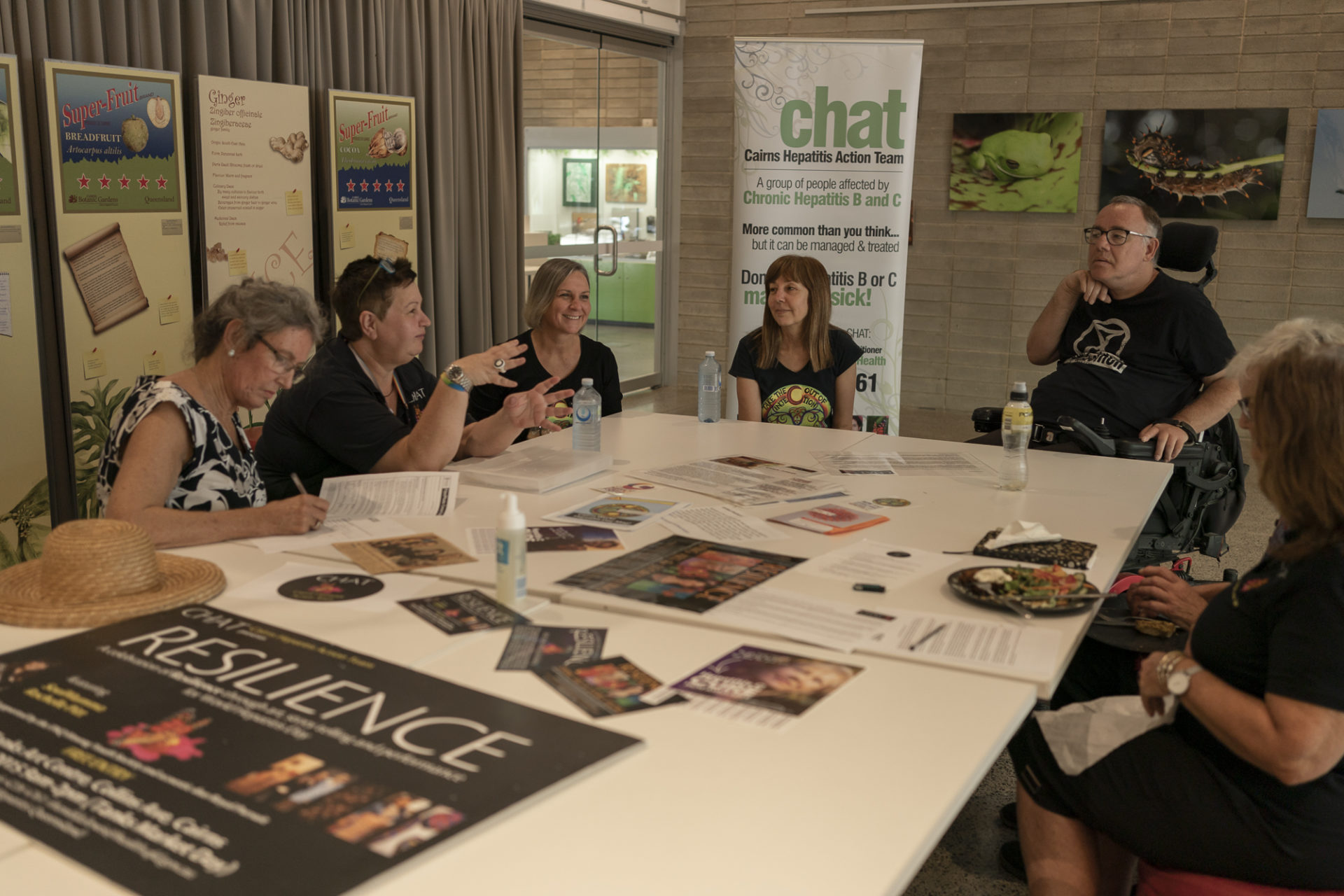
On the way to Cairns Hep C Free by 2020
There had been great strides made towards the original goal of Cairns Hep C Free by 2020, however, the work hasn’t finished. Dr Russell and his team from Cairns SHS are working closely with First Nations communities and the local prison, Lotus Glen Correctional Centre, to ensure hepatitis C rates continue on a declining trajectory.
In a small city located in a remote region of Australia, relationships are everything. They’ve certainly been a key ingredient to the hep C treatment success in Cairns.
